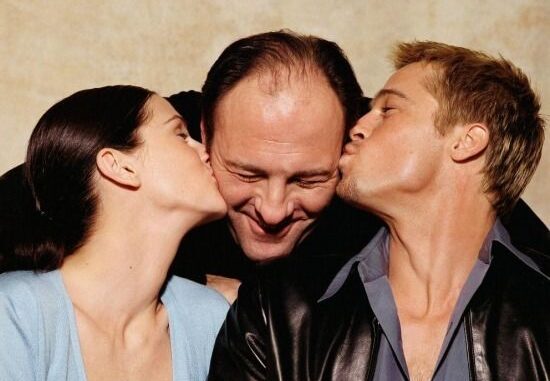
10 Details in The Sopranos That Don’t Make Sense (And Why They Still Work)
“The Sopranos” is one of the greatest TV shows ever made. A masterpiece of storytelling, filled with complex characters, sharp dialogue, and themes that explore the human psyche. Yet, like all great shows, it’s not perfect. Over its six seasons, The Sopranos threw out countless details that just didn’t quite add up. Some of them were so subtle you could easily miss them, while others stood out like sore thumbs.
But here’s the twist: even though these details don’t always make sense, they’re part of what makes The Sopranos so iconic. Let’s dive into 10 details that don’t quite hold up upon closer inspection, and explore why they might just be the show’s secret sauce.
1. Tony’s Power in the Family: How Does He Stay on Top?
Tony Soprano, the show’s central character, is a mob boss. But in the criminal underworld, power isn’t guaranteed. He constantly faces challenges from rival factions, disloyal captains, and even his own family. Yet, despite all the drama and threats to his reign, Tony remains in control.
Why Doesn’t It Add Up?
Tony’s leadership feels shaky at times, especially with characters like Junior, Carmine, and Ralph constantly undermining him. He also struggles with personal issues, like his therapy sessions and his own psychological demons. It’s a mystery why Tony doesn’t face a more serious power struggle. A mob boss in real life would likely face more direct challenges for his throne.
Why It Still Works:
The unpredictability of Tony’s reign adds to the tension and drama. If Tony were constantly facing direct challenges, the narrative would be too straightforward. His unsteady hold on power mirrors his internal chaos, making his character that much more compelling.

2. Dr. Melfi’s Sessions: The Therapist Who Gets Too Close
Dr. Jennifer Melfi’s relationship with Tony is one of the most intriguing aspects of The Sopranos. As a therapist, she constantly walks a fine line between professional distance and personal involvement. Over time, she becomes emotionally entangled with Tony, even though she’s supposed to remain neutral.
Why Doesn’t It Add Up?
At several points, Dr. Melfi seems to forget her professional boundaries. She’s emotionally invested in Tony’s well-being, and it clouds her judgment. In a real-world therapy setting, such a relationship would be highly unethical and likely to lead to serious consequences.
Why It Still Works:
Melfi’s growing attachment to Tony speaks to the complexity of human relationships. The show uses her character to explore themes of power, manipulation, and psychological dependence. Her moral struggles reflect Tony’s own, and in a twisted way, their dynamic becomes one of the show’s most intriguing storylines.
3. The Disappearance of Pussy: Did We Ever Really Get Closure?
Salvatore “Pussy” Bonpensiero’s disappearance in season 2 is one of the most dramatic moments in the show. After being revealed as an FBI informant, he’s taken out by Tony’s crew. Yet, the emotional fallout of his death doesn’t feel fully addressed.
Why Doesn’t It Add Up?
Pussy’s death is quick and brutal, but there’s little aftermath. Tony seems to move on from his betrayal without much reflection. Given that Pussy was a central figure in the crew for years, it feels like the show glosses over his end too quickly. The fact that the crew members never talk about it afterward is puzzling.
Why It Still Works:
In the world of The Sopranos, loyalty is fleeting, and people are expendable. The lack of closure around Pussy’s death underscores the show’s themes of betrayal and the harsh reality of the mob life. Tony’s ability to quickly move past it shows just how desensitized he’s become, which adds depth to his character.
4. Adriana’s Fate: The Unresolved Storyline That Never Quite Lands
Adriana La Cerva’s tragic end at the hands of the mob is another storyline that feels oddly abrupt. She’s been a major character throughout the show, and her relationship with Christopher is one of the central emotional arcs.
Why Doesn’t It Add Up?
The way Adriana is killed is quick and almost dismissive. She’s lured into a false sense of security, and in the end, her death doesn’t seem to be given the narrative weight it deserves. There’s no lengthy emotional payoff for the viewer, and her character arc feels unfinished.
Why It Still Works:
Adriana’s death reflects the sudden, unpredictable nature of life in the mob. The lack of closure mirrors the brutal reality of the world Tony and his crew inhabit. In the end, the unresolved nature of her story makes her death feel even more tragic and senseless, which enhances the show’s themes of inevitability and the harshness of the criminal world.
5. The Inconsistency of Tony’s Mental Health Struggles
Throughout the series, Tony’s mental health is a major focus. His therapy sessions are meant to explore his emotional and psychological issues, but the show often portrays his struggles inconsistently.
Why Doesn’t It Add Up?
Tony’s mental health seems to fluctuate from episode to episode. Sometimes he’s deeply introspective and self-aware, while at other times, he seems completely oblivious to the damage he’s causing. His moments of vulnerability appear and disappear with little explanation.
Why It Still Works:
This inconsistency is a reflection of Tony’s complex character. Like many people with deep psychological issues, he doesn’t follow a linear path toward healing. The fluctuating nature of his mental health makes him feel more real and relatable. It’s this unpredictability that makes him such a fascinating character.
6. Carmela’s Complicity: How Does She Justify Her Role?
Carmela Soprano often acts as the supportive wife to Tony, but her own role in the family business is a bit murky. She’s aware of Tony’s criminal activities, yet she often chooses to ignore or even justify them.
Why Doesn’t It Add Up?
Carmela’s moral compass seems to bend when it comes to Tony’s illegal activities. She constantly rationalizes her lavish lifestyle, despite knowing where the money is coming from. Her complicity in Tony’s life feels like a major moral blind spot that the show doesn’t fully address.
Why It Still Works:
Carmela’s character is a fascinating exploration of denial, power, and the complexities of marriage. Her willingness to turn a blind eye to Tony’s actions is part of her character’s depth. It speaks to the struggle many people face when confronted with uncomfortable truths in relationships.
7. Junior’s Legal Troubles: How Does He Keep Avoiding Jail?
Junior Soprano’s run-ins with the law are frequent, yet he rarely seems to face serious legal consequences. Despite being a notorious mob boss, Junior seems to have an uncanny ability to escape jail time.
Why Doesn’t It Add Up?
Junior’s legal troubles should have been a much bigger threat to him, yet he continues to evade major consequences. It feels like the law enforcement aspect of the show is sometimes too lenient on him, especially given the serious charges he faces.
Why It Still Works:
Junior’s ability to avoid legal repercussions highlights the power and influence that mobsters have in the system. It also adds to the show’s critique of justice and the way the powerful can often avoid punishment. Junior’s evasion of jail is another commentary on the corruption of the system.
8. The Soprano Family’s Wealth: How Much Is Really From the Mob?
The Sopranos live in a mansion, drive expensive cars, and have access to lavish vacations. But how much of this wealth is truly earned from Tony’s mob activities?
Why Doesn’t It Add Up?
At times, the show presents Tony as a mob boss who’s struggling to make ends meet, yet his family’s lifestyle seems to suggest otherwise. The discrepancy between Tony’s wealth and his financial troubles is often left unexplained.
Why It Still Works:
The show doesn’t dwell on the details of the Soprano family’s wealth because it isn’t important. The show is more concerned with the psychological and emotional ramifications of Tony’s lifestyle than the specifics of his finances. The lavish lifestyle acts as a symbol of the tension between Tony’s outward success and his internal turmoil.
9. The Disappearance of the FBI: Why Do They Stop Investigating Tony?
For much of the series, the FBI seems to be closing in on Tony. Yet, at certain points, their investigation just seems to disappear, with little explanation.
Why Doesn’t It Add Up?
The lack of follow-through from the FBI is puzzling. They never seem to be fully committed to taking Tony down, even though they’ve got ample evidence against him. It feels like a narrative oversight, as the FBI’s role seems